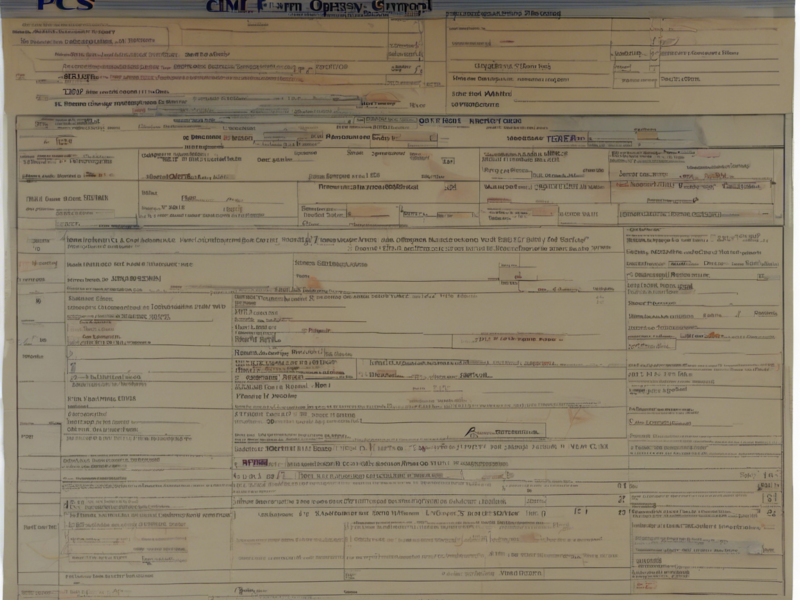Introduction
In the realm of healthcare, numerous acronyms and abbreviations are used to describe various conditions, procedures, and diagnoses. One such acronym that is commonly encountered is PCS, which stands for Post-Concussion Syndrome. Post-Concussion Syndrome refers to a set of symptoms that may persist for weeks or even months after a concussion has occurred. In this article, we will delve deep into the understanding of PCS, discussing its causes, symptoms, diagnosis, treatment options, and prognosis.
What is PCS?
Post-Concussion Syndrome is a condition characterized by a set of symptoms that persist for an extended period after a concussion. A concussion is a mild traumatic brain injury that occurs due to a blow or jolt to the head. While most individuals recover from a concussion within a few days to a few weeks, some may continue to experience symptoms for a longer duration, leading to the diagnosis of PCS.
Causes of Post-Concussion Syndrome
The exact cause of Post-Concussion Syndrome is not well-understood. However, it is believed to be related to the complex cascade of physiological changes that occur in the brain following a concussion. These changes may include alterations in neurotransmitter levels, disruption of the brain’s normal functioning, and changes in cerebral blood flow.
Symptoms of PCS
Individuals with Post-Concussion Syndrome may experience a range of symptoms that can vary in severity. These symptoms may include:
- Headaches
- Dizziness
- Fatigue
- Irritability
- Sleep disturbances
- Sensory sensitivities
- Cognitive difficulties (such as memory problems and difficulty concentrating)
- Emotional changes (such as mood swings and anxiety)
It is essential to note that the symptoms of PCS can significantly impact an individual’s quality of life and daily functioning.
Diagnosis of PCS
Diagnosing Post-Concussion Syndrome can be challenging, as there is no specific test or imaging study that can confirm the presence of the condition. Healthcare providers rely on the individual’s medical history, a physical examination, and the presence of persistent symptoms following a concussion to make a diagnosis of PCS. In some cases, neurocognitive testing may be used to assess cognitive function and track changes over time.
Treatment Options for PCS
The management of Post-Concussion Syndrome typically involves a multidisciplinary approach aimed at addressing the various symptoms and improving the individual’s quality of life. Treatment options may include:
- Rest and Activity Modification: Adequate rest and gradual return to activities can help in the recovery process.
- Medications: In some cases, medications may be prescribed to manage specific symptoms such as headaches, sleep disturbances, or mood changes.
- Cognitive Rehabilitation: This may include strategies to improve memory, concentration, and other cognitive functions.
- Physical Therapy: Rehabilitation exercises may help in improving balance, coordination, and overall functional abilities.
- Counseling or Therapy: Psychological support can be beneficial in managing emotional changes and coping with the impact of PCS.
It is crucial for individuals with Post-Concussion Syndrome to work closely with healthcare providers to develop a personalized treatment plan based on their specific symptoms and needs.
Prognosis of PCS
The prognosis of Post-Concussion Syndrome varies from individual to individual. While some may experience a gradual improvement in symptoms over time, others may have persistent symptoms that last for an extended period. It is essential for individuals with PCS to be patient in their recovery process and to seek appropriate medical care and support.
Frequently Asked Questions (FAQs)
1. How long do symptoms of PCS typically last?
The duration of symptoms in Post-Concussion Syndrome can vary greatly from person to person. While some individuals may recover within a few weeks, others may experience symptoms for several months or even longer.
2. Can children develop PCS?
Yes, children can develop Post-Concussion Syndrome following a concussion. It is essential for parents and caregivers to monitor any persistent symptoms and seek medical attention if needed.
3. Are there any risk factors for developing PCS?
Certain factors such as a history of previous concussions, a severe initial injury, older age, and pre-existing medical conditions may increase the risk of developing Post-Concussion Syndrome.
4. Is it safe to return to sports or physical activities after a concussion?
Individuals who have experienced a concussion should follow a gradual return-to-play protocol under the guidance of a healthcare provider to ensure their safety and reduce the risk of further injury.
5. Can PCS lead to long-term complications?
While most individuals with Post-Concussion Syndrome recover fully with time and appropriate management, some may experience long-term complications such as persistent cognitive difficulties, mood disorders, or chronic headaches.
In summary, Post-Concussion Syndrome is a complex condition that can have a significant impact on an individual’s well-being. By understanding the causes, symptoms, diagnosis, treatment options, and prognosis of PCS, individuals can better navigate their recovery journey and work towards improving their quality of life. If you or someone you know is experiencing persistent symptoms following a concussion, it is essential to seek medical attention for proper evaluation and management.

